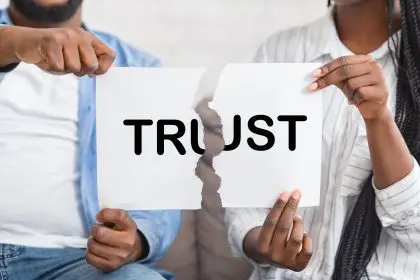The bittersweet reality behind why reuniting with an ex rarely leads to lasting happiness
The text message arrives unexpectedly: “Been thinking about you lately. Want to grab coffee?” Just like that, the door to your past creaks open, and a familiar face steps through. The butterflies return, those same ones you thought had long since fluttered away.
Rekindling romance with a former flame carries an intoxicating allure that new relationships simply cannot match. The comfort of familiarity mixed with the excitement of reconnection creates a potent emotional cocktail that can temporarily mask the sobering reality: most reunited couples ultimately separate again.
Research into relationship patterns reveals a troubling trend—approximately 70% of couples who reunite after a significant breakup will ultimately part ways again. This statistic stands in stark contrast to the dreamy narrative of destined lovers finding their way back to each other that permeates popular culture.
What causes these passionate reunions to crumble despite the best intentions of both parties? The answers lie in complex emotional and psychological patterns that many rekindled couples fail to recognize until history repeats itself.
The nostalgia trap ensnares even the most rational minds
When memories of a past relationship resurface, they often arrive bathed in the warm glow of nostalgia. The brain selectively filters out painful arguments, instead highlighting romantic getaways and tender moments. This selective memory creates an idealized version of the relationship that never truly existed.
“I kept remembering our amazing trip to Hawaii and how connected we felt walking on the beach at sunset,” says one woman who rekindled a five-year relationship after a two-year break. “Somehow I completely forgot about the weekly arguments about his workaholic tendencies that drove me crazy. Three months after getting back together, we were having the exact same fights.”
This nostalgia-driven amnesia becomes particularly dangerous when it leads couples to minimize or completely overlook serious issues that caused the initial breakup. Domestic conflicts, financial incompatibility, or fundamental value differences rarely resolve themselves without intentional effort.
The initial reunion period often feels magical precisely because both partners are temporarily operating within this selective memory framework. However, as daily routines resume and the honeymoon phase fades, reality inevitably intrudes.
- Unrealistic expectations create the perfect disappointment
Among the primary reasons rekindled relationships falter, unrealistic expectations rank at the top. Many reuniting couples unconsciously expect their partner to have transformed into an idealized version of themselves during the separation—retaining all their lovable qualities while magically shedding problematic behaviors.
“I thought time apart had changed him,” admits a 34-year-old teacher who rekindled a relationship with her college boyfriend after eight years apart. “He seemed more mature, more settled. But within six months, his commitment issues resurfaced. He was the same person, just with a better job and nicer apartment.”
This expectation gap creates a particularly painful form of disappointment. Not only must the person process the current relationship struggles, but they must simultaneously grieve the loss of their idealized vision. This double emotional burden often accelerates the relationship’s decline.
Couples who successfully navigate reunion relationships approach the reconnection with eyes wide open, acknowledging that while people can grow and change, core personality traits and relationship patterns typically remain consistent without dedicated therapeutic work.
- Unresolved issues inevitably resurface with renewed intensity
Like emotional zombies rising from the grave, unaddressed problems from the initial relationship invariably return to haunt the reunion. Financial conflicts, intimacy issues, family tensions, and communication breakdowns rarely resolve themselves during separation. Without active intervention, these patterns tend to reassert themselves with surprising speed.
A 41-year-old financial analyst who rekindled a relationship with his ex-wife three years after their divorce notes how quickly old patterns reemerged: “Within weeks, we fell right back into our dysfunctional routine. I became passive-aggressive about her spending, she retreated emotionally. It was like pressing play on a paused movie.”
This pattern proves especially destabilizing because many couples interpret the recurrence of old issues as evidence that the relationship is fundamentally doomed, rather than recognizing these moments as opportunities for growth and new approaches.
Successful second-chance couples differentiate themselves by treating past relationship issues as curriculum rather than baggage. They discuss past conflicts openly before they resurface, developing new strategies and communication approaches to address familiar challenges.
- Communication deficits compound faster in round two
Communication problems that contributed to the original breakup often intensify in rekindled relationships. This paradoxical effect stems from competing forces: increased emotional stakes make open communication more necessary yet simultaneously more frightening.
The fear of triggering another painful separation leads many people to withhold concerns or walk on eggshells. This communication hesitancy creates an illusion of harmony that gradually builds emotional distance between partners.
“I was so afraid of saying the wrong thing and losing him again that I stopped expressing my needs entirely,” explains a 29-year-old graphic designer who rekindled a two-year relationship after six months apart. “I became a completely different person around him—always agreeable, never challenging. Eventually, I didn’t recognize myself anymore.”
This communication retreat happens precisely when more honest exchange is critical. Successful reunion couples counterintuitively increase communication vulnerability, acknowledging that while openness carries risk, silence guarantees eventual disconnection.
Regular relationship check-ins, where both partners assess what’s working and what needs adjustment, help prevent the accumulation of unspoken concerns. These structured conversations create safe opportunities to address emerging issues before they become relationship-threatening problems.
- Emotional scar tissue complicates every interaction
Past relationship wounds create sensitive areas in the emotional landscape that can make even minor conflicts feel threatening. This emotional scar tissue develops after painful breakups and creates heightened reactivity to situations that resemble previous painful experiences.
When an argument erupts about a mundane issue like household chores, it can unconsciously trigger memories of similar conflicts that preceded the original breakup. This association elevates simple disagreements into seemingly existential threats to the relationship.
A 37-year-old chef who rekindled a relationship with his former fiancée describes this phenomenon: “Every time we disagreed about something small, part of me would panic, thinking we were headed for another breakup. My anxiety about losing the relationship again made me overreact to minor issues.”
This heightened emotional sensitivity creates a challenging dynamic where normal relationship friction generates disproportionate stress responses. Without awareness of this pattern, couples often mistake this intensity for fundamental incompatibility rather than recognizing it as a healing process for relationship trauma.
Couples who successfully navigate rekindled relationships develop what therapists call “emotional differentiation”—the ability to distinguish between current circumstances and past painful experiences. This skill allows them to respond to present situations appropriately rather than reacting based on historical wounds.
- Personal growth creates unexpected incompatibilities
Time apart invariably changes people. Career advancements, new friendships, travel experiences, and personal development create subtle but significant shifts in values, priorities, and lifestyle preferences. These changes, while positive for individual growth, can create unexpected compatibility issues when former partners reunite.
A 32-year-old marketing executive who rekindled a relationship after a three-year separation explains: “During our time apart, I became passionate about fitness and outdoor activities. She developed deeper interests in art and urban culture. Neither change was negative, but suddenly our free time interests completely diverged. We struggled to find activities we both genuinely enjoyed.”
These evolution-based incompatibilities often catch couples by surprise precisely because they involve positive changes rather than obvious problems. The relationship may founder not because either person has become “worse,” but because their personal growth has taken them in different directions.
Successfully navigating this challenge requires couples to approach their relationship as genuinely new, rather than a continuation of their previous connection. This fresh-start mindset creates space to discover each other again and build new compatibility bridges between their evolved selves.
- External relationships exert invisible pressure
Friends and family who witnessed the pain of the original breakup often harbor reservations about the reunion. These concerns, whether expressed directly or through subtle cues, create external pressure that can undermine the rekindled relationship’s foundation.
A 40-year-old nurse who reunited with her ex-husband describes this challenge: “My best friends were supportive to my face but skeptical behind my back. Their lack of enthusiasm was palpable at group gatherings. Eventually, their doubts became a self-fulfilling prophecy as I started questioning my own decision.”
This external skepticism proves particularly damaging because it often activates the couple’s own dormant doubts. When faced with relationship challenges, these external voices can amplify internal uncertainties, making normal adjustment difficulties seem like evidence that getting back together was a mistake.
Couples who successfully navigate these external pressures typically establish clear boundaries with well-meaning friends and family. They acknowledge concerns respectfully while maintaining relationship privacy, preventing outside voices from drowning out their own relationship experience.
- Trust rebuilding requires extraordinary commitment
Perhaps the most fundamental challenge facing rekindled relationships involves rebuilding trust. The original breakup, regardless of its specific circumstances, represents a rupture in the relationship container that held both partners’ emotional safety. Repairing this breach requires conscious effort from both individuals.
“I didn’t realize how much the first breakup had damaged my ability to trust that he would stay,” reveals a 36-year-old accountant who reunited with her college boyfriend after five years apart. “Even though our reconnection was going well, I kept waiting for the other shoe to drop. That anxiety prevented me from fully reinvesting emotionally.”
This trust deficit creates a painful catch-22: full emotional investment feels necessary for the relationship to succeed, yet seems impossibly risky given the previous heartbreak. Without addressing this trust paradox directly, many couples remain stuck in an emotional holding pattern, never fully recommitting to the relationship.
Couples who successfully rebuild trust approach the process with patience and intentionality. They recognize that trust returns gradually through consistent behavior over time rather than through dramatic declarations or promises. Small, reliable actions ultimately prove more powerful than grand gestures in healing these invisible wounds.
The rare success stories share common threads
Despite these formidable challenges, some rekindled relationships do flourish. These success stories typically share several common elements that distinguish them from failed reunions.
First, successful couples undergo meaningful personal growth during their time apart. Rather than simply missing each other, they use the separation to develop greater emotional maturity and self-awareness. This growth creates a genuinely different relationship dynamic when they reconnect.
Second, they approach potential reconciliation with careful consideration rather than impulsive passion. They discuss previous relationship patterns openly before fully recommitting, creating clear agreements about how they’ll address familiar challenges differently.
Third, successful reunion couples often engage professional support through couples therapy or relationship coaching. This external guidance helps them navigate the unique complexities of rekindled relationships with greater awareness and intentional communication.
Finally, these couples maintain realistic expectations about the work involved in creating a healthy relationship the second time around. They recognize that while their shared history provides valuable connection, building a sustainable future requires ongoing effort, patience, and mutual growth.
For those contemplating rekindling a past relationship, these patterns offer valuable guidance. The allure of reconnecting with someone who already knows and once loved you can be powerfully tempting. However, approaching this journey with clear eyes and realistic expectations provides the best foundation for determining whether a past relationship deserves a future.
Ultimately, the most successful rekindled relationships aren’t those that recapture the past but those that create something entirely new—a connection that honors their shared history while embracing the people they’ve become along the way.
















